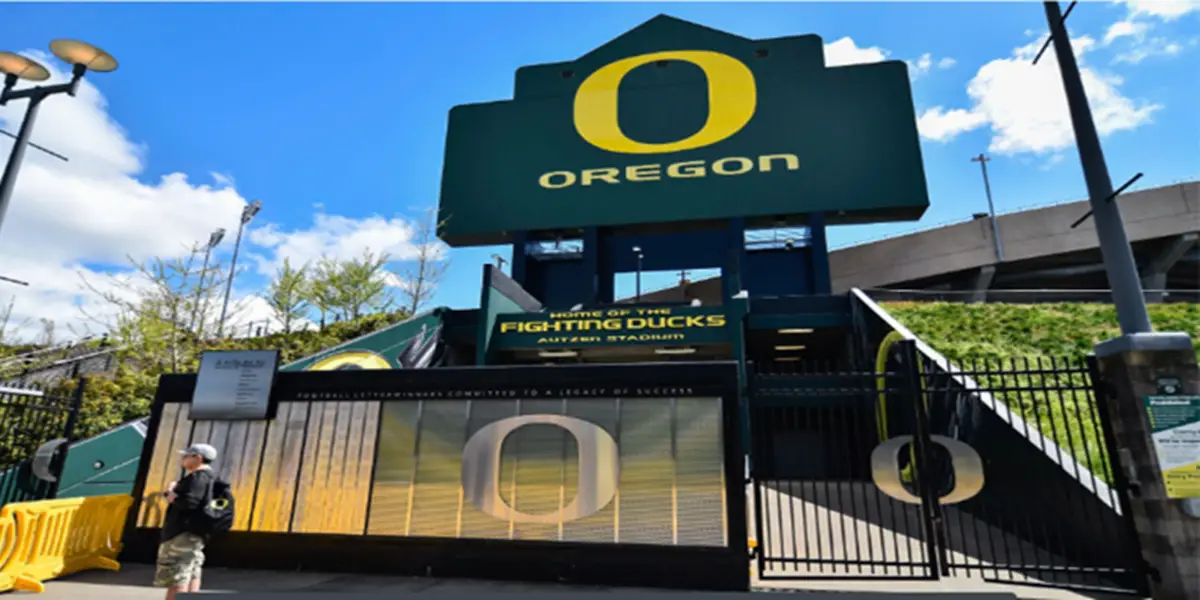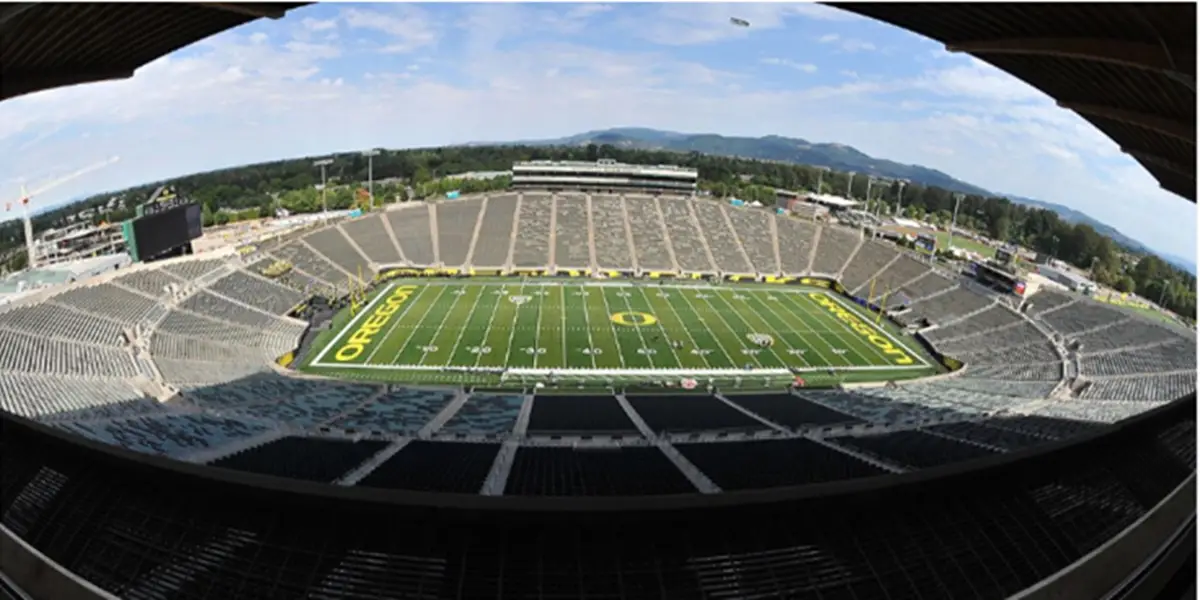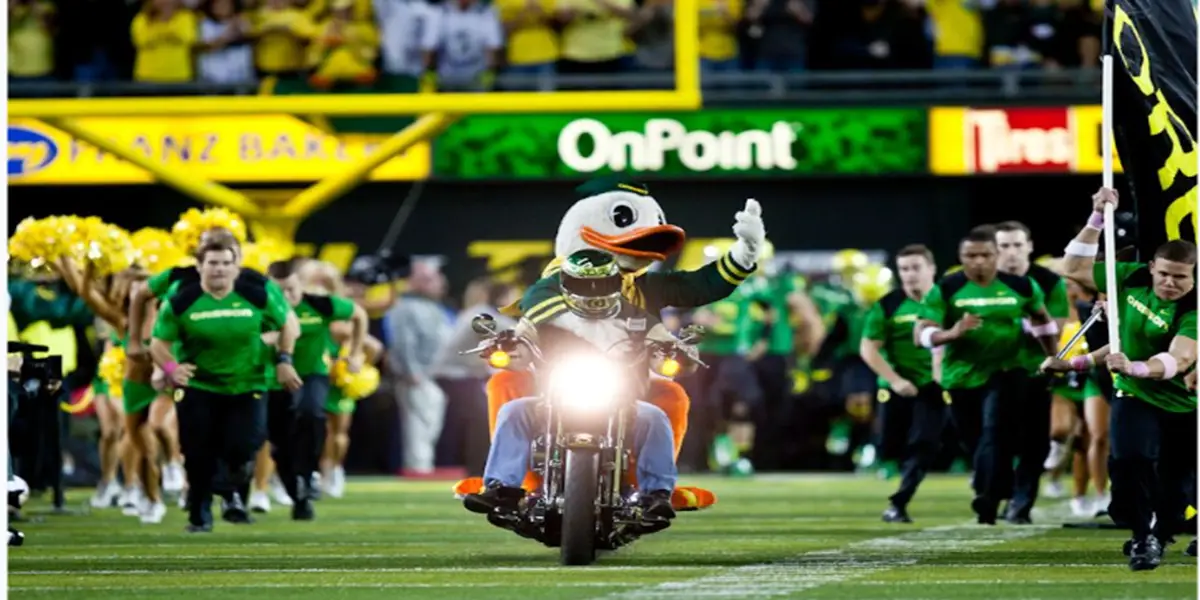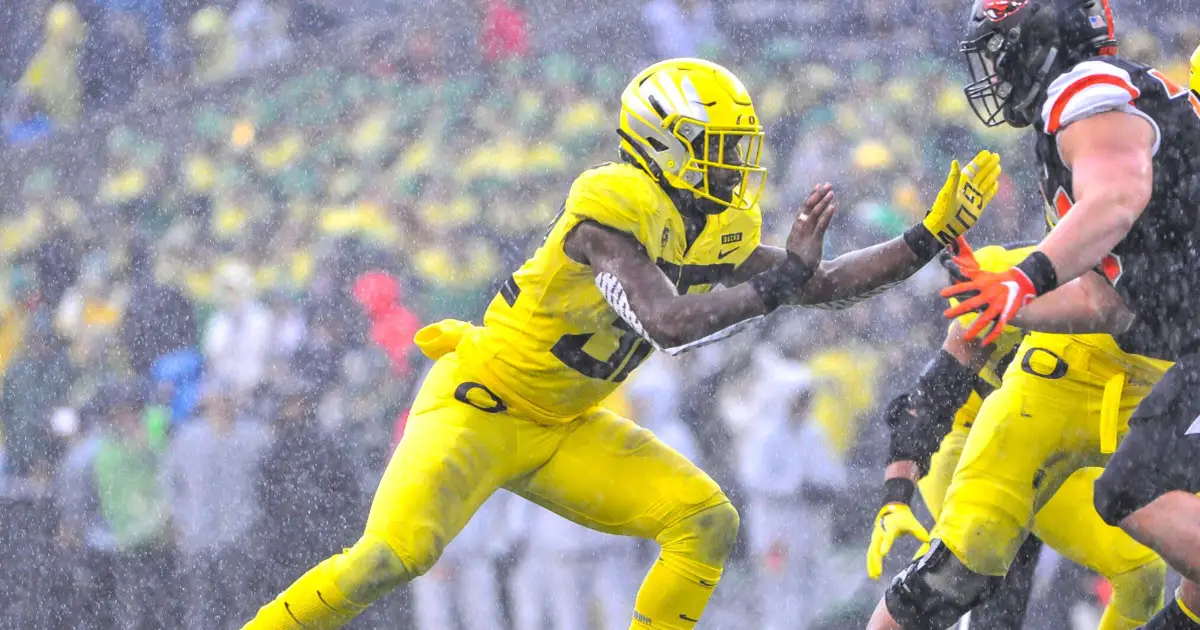“Winter” and “college football” don’t often co-exist in the same sentence. But with COVID-19 threatening fall kickoffs, a delayed start is one of several options being kicked around by college presidents and university athletic directors.
Reser Stadium in late January? What could possibly go wrong?
College presidents have declared there will be no football, basketball or any other college sports until the general student body returns to campus, and, believe it or not, their decision is based on legal precedent. In the 1960’s, the “Pacific Athletic Conference” (later to be named the “PAC-8”) filed a lawsuit challenging an SEC policy of housing all football players in the same dormitory. The court agreed the policy treated football players preferentially over the general student body and ruled that no college administration could allow more than 50% of its athletes to reside in any particular dormitory on campus.

Students First Buddy
Under this ruling, returning athletes to campus before the general student body would constitute preferential treatment. Consequently, students (and athletes) will return to campus when it is considered safe for the general population. Only then will college sports resume.
But How Safe Will it Be to Resume Normal Activity?
Isn’t is fairly easy to transmit this virus upon close proximity or contact? Especially during athletic activity, or with a hot-breathed fan shouting “O-O-O-O-O-O” in your ear for three straight hours? Fortunately, there has been round-the-clock effort to slash this virus like Paul Bunyon chopping his way through the Northwest Territory. The medical community is working on more than 200 remedies to restore our shot at attending football games as soon as this August.
There is hope of a fall kickoff.
But even if a vaccine paves the way for a fall kickoff, there remain concerns. For the past two months we have lived in uncertainty and fear, conditioned to shelter in place and observe social distancing. Even if we are fortunate to render COVID-19 dead on arrival, that fear may linger. Will we immediately trust a vaccine? How many will be willing to pack together among tens of thousands of fellow fans?
Despite the health threats of COVID-19 and the possibility of lingering fear and apprehension, one thing is clear: attendance at football games will be critical, not only for football specifically but for college athletics in general.

I’m Waiting…
The Financial Consequences
Every college sport depends on the financial success of football and basketball. The success of football and basketball depend, in turn, on ticket revenue. Universities have taken huge revenue hits as a result of the pandemic, and athletic departments’ margin for funding non-revenue sports is thinner than Larry Scott‘s hairline. Football and basketball attendance this year will be financially essential to non-revenue sports. Without physical attendance at football and basketball games, non-revenue sports will be become club sports.
Do You Feel Lucky?
Let’s suppose we are allowed to attend games, say the beginning of November? That delay, and the elimination of non-conference games, would place the Civil War at the end of January. The Ducks’ final home games against USC and Arizona State would also be in the winter. It may never “rain” in Autzen, but it may “squall” or “snow.”
If it were safe to attend the games, would you don your puffy jacket and buy a ticket?
Our world has been turned upside down in a matter of months. The games we love to watch “live and in person” have been rendered too dangerous for our health and well-being. Will life ever return to normal? Will we ever enjoy Our Beloved Ducks in Autzen en masse again? For the sake of their athletic departments, college administrators need to make that happen, and I believe they will. But it will also require that we fans overcome the fear and apprehension instilled in us over the course of the pandemic.

Doesn’t Get Better Than This
Reser Stadium in January? B-r-r-r-r.
I’m in. Are you?
Mike West
Las Vegas, Nevada
Top Photo by Kevin Cline

Phil Anderson, the FishDuck.com Volunteer editor for this article, is a trial lawyer in Bend Oregon.
Related Articles:
Unbelievable...Same SEC Stuff, Different Day
Why Oregon Football Always Belongs in the National Conversation
The B1G Won the 2026 Coaching Carousel...Big-Time!
Continuity? Lanning's Hiring Success is Put to the Test
Why Whether Dyer Was Down or Not...Doesn't Matter
How to Analyze Football Talent Like a Pro
Mike West was born in Southern California and moved to Eugene in 1976. He attended his first Oregon Football game and watched USC maul the Ducks 63-0. Despite the disappointment he became an avid fan after watching the Rich Brooks show every Sunday in the Fall. After graduating from the University of Oregon, he returned to Los Angeles and enjoyed a career in Customer Service for two decades. Thrilled at the ascent of Oregon Football, he attended both Rose Bowls, living just five miles from the stadium. He now lives in Las Vegas.

